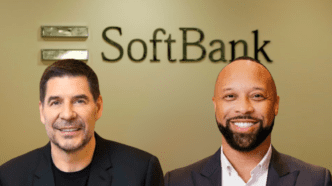In a move that redefines the scale of startup investments, SoftBank has committed up to $40 billion in funding for OpenAI, making it the largest single financing round in startup history. This unprecedented investment overshadows all previous deals and signals a new era for high-stakes venture capital.
Breaking Records With a $40 Billion Commitment
SoftBank’s latest move is not just big—it’s historic. The $40 billion OpenAI funding round dwarfs previous mega-deals in the startup world. The closest contender was Microsoft’s $10 billion backing of OpenAI in 2023. But even that was a strategic, staged investment—not a traditional venture round.
Other notable big-ticket rounds, such as Databricks’ $10 billion raise at a $62 billion valuation earlier this year, come nowhere near the scale or ambition of this SoftBank initiative. Even SoftBank’s own $9.5 billion WeWork financing in 2019—which later went awry—pales in comparison.
Not Your Standard Startup Deal
Like many of SoftBank’s high-profile bets, the OpenAI funding round isn’t a simple VC check. The deal has a layered structure: SoftBank plans to raise $10 billion from co-investors and directly contribute $30 billion. OpenAI is expected to receive the full $40 billion before the year ends.
But there’s a catch. The post-money valuation of $300 billion for OpenAI hinges on restructuring its for-profit subsidiary, which runs the commercial side of its AI operations. Once complete, this will make OpenAI the highest-valued venture-backed private company founded in the last decade.
A New Peak in Private Tech Valuations
The SoftBank-OpenAI funding deal comes during a period of record-breaking private market valuations. At least seven other U.S.-based private startups are currently valued above $45 billion, with some eyeing even loftier heights.
Here’s a look at the current giants in the private tech world:
- SpaceX: Though no longer a startup, SpaceX is the most valuable U.S. private tech company with a $350 billion valuation, achieved through a secondary share sale last year.
- Stripe: The payment giant hit a $91.5 billion valuation through a tender offer aimed at providing liquidity to current and former employees.
- xAI: Elon Musk’s AI venture recently reached a $50 billion valuation but could soon hit $80 billion, thanks to an upcoming $33 billion all-stock acquisition of X (formerly Twitter).
- Databricks: After its Series J round, the data analytics platform confirmed its $62 billion valuation with a $10 billion raise.
- Anthropic: This AI powerhouse reached a $61.5 billion valuation following a $3.5 billion funding round led by Lightspeed Venture Partners in March.
- Waymo: Alphabet’s self-driving unit raised $5.6 billion in a Series C round, valuing it at around $45 billion.
The Rise of Long-Term Private Capital
Today’s VC landscape is shifting. In the past, companies felt intense pressure to go public once valuations hit a certain peak. But that trend is fading. Investors are increasingly content to hold shares in private unicorns, confident in long-term value appreciation.
And so far, that strategy seems to be paying off. As company valuations rise steadily, investors see massive upside in staying private longer—especially in sectors like AI and autonomous tech.













